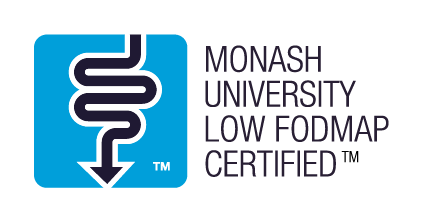Gut Health, Mental Health and Nutrition. - A love triangle
That gut feeling, you know the one where your tummy’s in a twist? Your gut says something different to your brain and you feel on the edge of your seat? Or maybe it's the tingling feeling of butterflies in your stomach. We have all felt these sensations, and this really emphasises the relationship between our gut and our brain.
In fact these two are besties, they are constantly chatting away to each other. The brain is home to the central nervous system, whilst our gut is home to the eccentric nervous system or less formally known as your “second brain” or “ little brain.” Which is two thin layers of more than 100 million nerve cells lining your gastrointestinal tract - from your mouth to your rectum. With the main role of controlling digestion, and communicating with the brain. This long term relationship is formally known as, The Gut Brain Axis and defined as a bidirectional link between the central nervous system and the eccentric nervous system (Carabotti 2015).
Over the years, studies have shown the relationship between the Gut Brain Axis and regulated stress (Foster 2017.) Linking back to that gut wrenching feeling, it's evident that when we are stressed our gut experience this too. Based on this, it was originally thought that stress through mental health disorders like depression and anxiety, lead to gut health issues like Irritable Bowel Syndrome (IBS). It is now thought that the gut influences the brain and behaviour, and vice versa, and that IBS and gut issues may influence our mood and overall happiness(Mayer 2015.) Therefore showing a potential link between our gut health and our mental health.
Okay, so, how does our gut have such effects?
Studies supporting this have shed a light on our gut microbiota, suggesting that they play a critical role in our Gut-Brain communication and can influence stress related behaviors, including those relevant to anxiety and depression (Foster 2017.)
But what's a gut microbiota?
Here's where it gets pretty cool ... our gut is home to trillions of microorganisms including bacteria, out numbering human cells in our bodies!? (Stiling 2015) Each of our gut microbiota are unique, yours is very different to your neighbours, this is because we have been “collecting” our microorganisms since birth and along the way have been exposed to different things like natural childbirth, antibiotics, early life stress, food groups and so on. All of these events “shape” our microbiota, causing shifts in ratios of “good” and “bad” bacteria.
This is when it comes down to, “you are what you eat!” As we can change our gut microbiota through our diet (Foster 2017), our ratios are not set in stone, and are changing all the time. Over the years mental health researchers have tested supplementation of many food groups and their effects in the regulation of mood, behaviour and mental health disorders.
So, what can you eat to improve your mental health?
- Probiotics have been heavily studied as a treatment to people with poor gut health such as IBS, their findings also show that probiotic intervention reduces anxiety and stress, and improves mood in people with IBS (Cryan 2011). Further studies on healthy participants show that certain probiotics may have the same beneficial effects on alleviating symptoms of anxiety and stress (Foster 2017). Whilst these studies were using supplementation, you can get probiotics through some fermented foods or foods with added probiotics such as, eating yogurt, kefir, kimchi, kombucha, sauerkraut and miso. It's important to note that not all fermented foods contain live microbes as some may die during cooking or processing.
- Prebiotics we now understand that these beneficial bacteria need food to flourish and this is essentially what prebiotics are…fuel for the beneficial bacteria. The best source are plant foods containing the type of dietary fibres that resist digestion and can ferment in the gut and create the right environment for these bacteria to do good things. So it’s important to eat a wide variety of grains, nuts, fruit and vegetables and lentils and other legumes.
- Tryptophan is an essential amino acid found in some proteins like meat, eggs, beans, fish and lentils and is essential in the synthesis of serotonin. It is estimated that approximately 95% of serotonin is produced in the gut, low serotonin levels have been associated with depression (Foster 2016.)
- Omega 3 fatty acids have shown to improve depressive behavior, delay the onset of depression and improve mood in humans (Zainuddin 2015 & Bodnar 2005.) There are three omega 3 fatty acids, two of which can be found in oily fish like salmon. The third is found in plant oils like flaxseed, chia seeds, walnuts.
- Polyphenols are found in a wide range of plant based foods. These compounds are packed with antioxidant power, foods rich in these have shown to improve depressive symptoms. These include blueberries and cocoa (Zainuddin 20155 & Bodnar 2005.)
- Folate and B12: Are both essential for normal central nervous system function, and studies have shown they may modulate mood through several mechanisms. Folate and B12 are also needed to make serotonin, so low levels naturally associate with depression (Bodnar 2005). Folate rich foods include dark leafy greens, grains, eggs, meat and dairy products. B12 is naturally found in animal products, including fish, meat, eggs, and dairy products. Hence it's very important that vegans and some vegetarians supplement B12, or buy fortified products such as breakfast cereals.
- Zinc is linked to behaviour in humans, diets rich in zinc and supplementation have shown improved behaviour (Zainuddin 20155 & Bodnar 2005.) Zinc is found in an array of food including oysters, red meat, crab, wholegrains and certain beans and nuts.
- Vitamin E deficiency is associated with risk of depressive behaviour in humans (Zainuddin 20155 & Bodnar 2005.) Vitamin E can be found in almonds, sunflower seeds and sunflower oil.
- Iron deficiency is associated with depression, concentration and mood. It also affects the enzymes needed to make serotonin and dopamine (Bodnar 2005.) Iron is found in two forms, heme and nonheme. Heme Iron is readily absorbed by the body and is found in meat products. Non heme iron is not as readily absorbed and is found in spinach, beans and lentils. Vitamin C enhances the availability of non heme iron, so it's recommended to be consumed with these foods. Eg: squeezing lemon juice over your spinach.
- Selenium is an important modulator of mood, and diets high in selenium have shown to improve mood (Bodnar 2005.) Brazil nuts, fish, meat, cereals and dairy products.
Mental health disorders have increased over the years, during these same years our diets have significantly changed. There is some very interesting research being done in Australia at the Food and Mood Centre Deakin University looking at the potentially positive impact of the Mediterranean diet on mood. With growing evidence we can see that what we eat is important for how we feel.
It is estimated that 45% of the Australian population aged 16-85 will experience a mental health disorder at some point in their life. - That's nearly 8.7 million people (AIHW 2019.) Mental health awareness is now growing, and people are taking more care with their mental health. Which is AWESOME, and we here at Dineamic think it's pretty cool that what we eat can have such a positive impact.
Alicia McIntyre
References:
Bodnar, Lisa M. “Nutrition and Depression: Implications for Improving Mental Health Among Childbearing-Aged Women.” Biol Psychiatry, 2005. NCBI, https://www.ncbi.nlm.nih.gov/pmc/articles/PMC4288963/.
“The Brain-Gut Connection.” Hopkins Medicine, 2019, https://www.hopkinsmedicine.org/health/wellness-and-prevention/the-brain-gut-connection.
Carabotti, Marilia. “The gut-brain axis: interactions between enteric microbiota, central and enteric nervous systems.” NBIC, 2015, https://www.ncbi.nlm.nih.gov/pmc/articles/PMC4367209/.
Cryan, John F. “The microbiome‐gut‐brain axis: from bowel to behavior.” Neurogastroenterology & Motility, 2011. https://onlinelibrary.wiley.com/doi/full/10.1111/j.1365-2982.2010.01664.x.
Foster, Jane A. “Stress & the gut-brain axis: Regulation by the microbiome.” Neurobiology of Stress Volume 7, December 2017, Pages 124-136, vol. Volume 7, no. 7, 2017, pp. 124-136. Science Direct, https://www.sciencedirect.com/science/article/pii/S2352289516300509.
Mayer, Emeran A. “Gut/brain axis and the microbiota.” The Journal of Clinical Investigation, 2015. https://www.jci.org/articles/view/76304.
“Mental Health Services Australia.” Australian Institute of Health and Wellness, AIHW, 2019, https://www.aihw.gov.au/reports/mental-health-services/mental-health-services-in-australia/report-contents/summary/prevalence-and-policies.
Stiling, Roman M. “Microbes & neurodevelopment – Absence of microbiota during early life increases activity-related transcriptional pathways in the amygdala.” Brain, Behaviour, and Immunity, vol. 50, 2015. Science Direct, https://www.sciencedirect.com/science/article/abs/pii/S0889159115004043.
Zainuddin, Muhammad S. “Nutrition, adult hippocampal neurogenesis and mental health.” Institute of Psychiatry, Centre for the Cellular Basis of Behaviour, The James Black Centre, King’s College London, 125 Coldharbour Lane, London SE5 9NU, UK, 2012. https://d1wqtxts1xzle7.cloudfront.net/47255782/89.full.pdf









